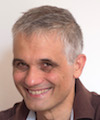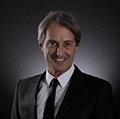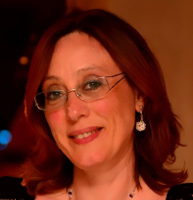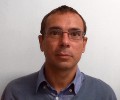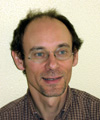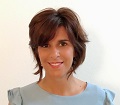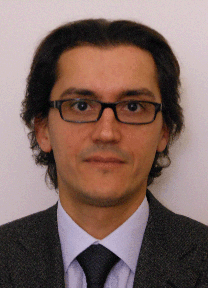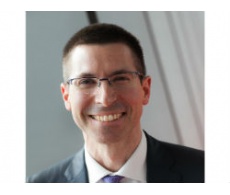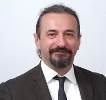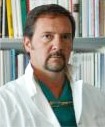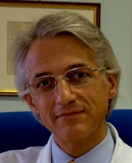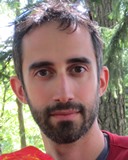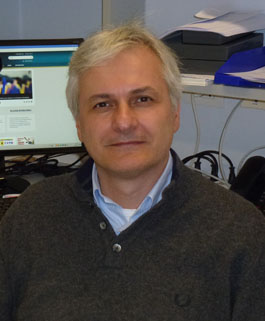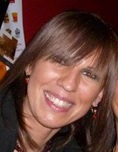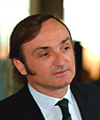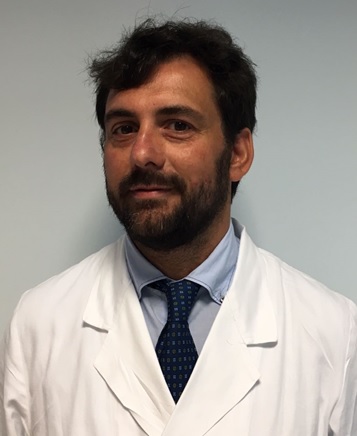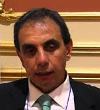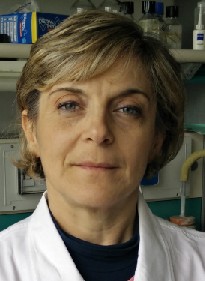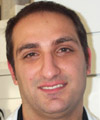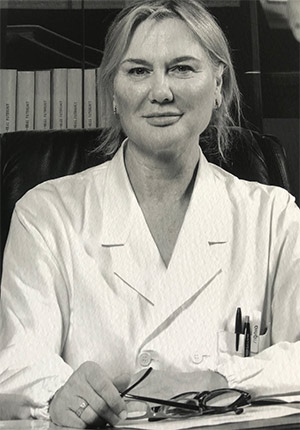Studying at the University of Verona
Academic calendar
The academic calendar shows the deadlines and scheduled events that are relevant to students, teaching and technical-administrative staff of the University. Public holidays and University closures are also indicated. The academic year normally begins on 1 October each year and ends on 30 September of the following year.
Course calendar
The Academic Calendar sets out the degree programme lecture and exam timetables, as well as the relevant university closure dates..
| Period | From | To |
|---|---|---|
| LEZIONI 1° SEMESTRE 2°-3°-4°-5°-6° ANNO | Oct 1, 2020 | Dec 23, 2020 |
| LEZIONI 1° E 2° SEMESTRE (INSEGNAMENTI ANNUALI) | Oct 1, 2020 | May 28, 2021 |
| LEZIONI 1° SEMESTRE 1° ANNO | Oct 19, 2020 | Dec 23, 2020 |
| LEZIONI 2° SEMESTRE 1° 2° -3°-4°-5°-6° ANNO | Feb 15, 2021 | May 28, 2021 |
| Session | From | To |
|---|---|---|
| ESAMI DI PROFITTO SESSIONE INVERNALE A.A. 2019/2020 E 1° SEMESTRE A.A. 2020/2021 | Jan 7, 2021 | Feb 12, 2021 |
| ESAMI DI PROFITTO SESSIONE ESTIVA LAUREANDI A.A. 2020/2021 | May 31, 2021 | Jul 2, 2021 |
| ESAMI DI PROFITTO SESSIONE ESTIVA A.A. 2020/2021 | May 31, 2021 | Jul 30, 2021 |
| ESAMI DI PROFITTO SESSIONE AUTUNNALE A.A. 2020/2021 | Sep 1, 2021 | Sep 30, 2021 |
| Session | From | To |
|---|---|---|
| SESSIONE INVERNALE A.A. 2019/2020 | Mar 1, 2021 | Mar 12, 2021 |
| SESSIONE ESTIVA A.A. 2020/2021 | Jul 13, 2021 | Jul 30, 2021 |
| SESSIONE AUTUNNALE A.A. 2020/2021 | Oct 11, 2021 | Oct 22, 2021 |
| Period | From | To |
|---|---|---|
| FESTIVITA' OGNISSANTI | Nov 1, 2020 | Nov 1, 2020 |
| FESTIVITA' IMMACOLATA CONCEZIONE | Dec 8, 2020 | Dec 8, 2020 |
| VACANZE DI NATALE | Dec 24, 2020 | Jan 3, 2021 |
| VACANZE DI PASQUA | Apr 4, 2021 | Apr 5, 2021 |
| FESTIVITA' DELLA LIBERAZIONE | Apr 25, 2021 | Apr 25, 2021 |
| FESTIVITA' DEL LAVORO | May 1, 2021 | May 1, 2021 |
| FESTIVITA' DEL SANTO PATRONO SAN ZENO | May 21, 2021 | May 21, 2021 |
| FESTIVITA' DELLA REPUBBLICA | Jun 2, 2021 | Jun 2, 2021 |
| Description | Period | From | To |
|---|---|---|---|
| TIROCINIO 1°SEMESTRE | TIROCINIO 1°SEMESTRE | Oct 1, 2020 | Feb 12, 2021 |
| ATTIVITA' FACOLTATIVA O DI RECUPERO TIROCINIO | ATTIVITA' FACOLTATIVA O DI RECUPERO TIROCINIO | Oct 1, 2020 | Sep 30, 2021 |
| TIROCINIO 2°SEMESTRE | TIROCINIO 2°SEMESTRE | Feb 15, 2021 | Jul 23, 2021 |
Exam calendar
Exam dates and rounds are managed by the relevant Medicine Teaching and Student Services Unit.
To view all the exam sessions available, please use the Exam dashboard on ESSE3.
If you forgot your login details or have problems logging in, please contact the relevant IT HelpDesk, or check the login details recovery web page.
Should you have any doubts or questions, please check the Enrollment FAQs
Academic staff
 guido.martignoni@univr.it
guido.martignoni@univr.it
 alessia.pardo@univr.it
alessia.pardo@univr.it
Study Plan
The Study Plan includes all modules, teaching and learning activities that each student will need to undertake during their time at the University.
Please select your Study Plan based on your enrollment year.
1° Year
| Modules | Credits | TAF | SSD |
|---|
2° Year activated in the A.Y. 2021/2022
| Modules | Credits | TAF | SSD |
|---|
3° Year activated in the A.Y. 2022/2023
| Modules | Credits | TAF | SSD |
|---|
4° Year activated in the A.Y. 2023/2024
| Modules | Credits | TAF | SSD |
|---|
5° Year It will be activated in the A.Y. 2024/2025
| Modules | Credits | TAF | SSD |
|---|
6° Year It will be activated in the A.Y. 2025/2026
| Modules | Credits | TAF | SSD |
|---|
| Modules | Credits | TAF | SSD |
|---|
| Modules | Credits | TAF | SSD |
|---|
| Modules | Credits | TAF | SSD |
|---|
| Modules | Credits | TAF | SSD |
|---|
| Modules | Credits | TAF | SSD |
|---|
| Modules | Credits | TAF | SSD |
|---|
Legend | Type of training activity (TTA)
TAF (Type of Educational Activity) All courses and activities are classified into different types of educational activities, indicated by a letter.
Maxillofacial pathology and therapy (2024/2025)
Teaching code
4S02648
Credits
10
Language
Italian
Also offered in courses:
- Clincal ORL, Odontostomatology and Maxillofacial Surgery, Ophthalmology - OTORINOLARINGOIATRIA of the course Combined Bachelor's + Master's degree in Medicine and Surgery
Courses Single
AuthorizedThe teaching is organized as follows:
OTORINOLARINGOIATRIA
Credits
3
Period
5° ANNO 2° SEMESTRE
Academic staff
Not yet assigned
CHIRURGIA MAXILLO-FACCIALE
Credits
3
Period
5° ANNO 2° SEMESTRE
Academic staff
Not yet assigned
CHIRURGIA ORALE
Credits
2
Period
5° ANNO 2° SEMESTRE
Academic staff
Not yet assigned
ATTIVITA' PRATICA IN CHIRURGIA ORALE
Credits
2
Period
5° ANNO 2° SEMESTRE
Academic staff
Not yet assigned
Learning objectives
Aim of the course is to provide the learner all the basic knowledges regarding the diseases of the maxillofacial district. The main objective is to develop the skills for a correct classification and diagnosis of the main maxillofacial and ENT pathologies in order to manage them properly through collaboration with the specialist. For pathologies, however, inherent to the branch of oral surgery, since they are purely odontostomatological problems, will be required in addition to diagnosis to do a proper treatment planning through a suitable assessment of the different therapeutic options available. PRACTICAL ACTIVITY IN ORAL SURGERY MODULE Training objectives. The student must achieve the necessary skills to: perform a complete clinical examination of the patient affected by the diseases treated during the lectures prescribe the best instrumental investigations in order to correctly address them formulate a treatment plan perform the basic surgical procedures in all their steps (preparation of the operative field, anesthesia, flap design, suture and post-surgical dressing). MAXILLO-FACIAL SURGERY MODULE Learning objectives During the course all the pathologies of absolute maxillofacial relevance will be developed from the diagnosis up to the principles of surgical treatment in order to provide the learner with all the knowledges required for a correct patient’s staging. In particular, the following topics will be explored in terms of etiopathogenesis, diagnosis and treatment principles:concept of urgency / emergency in maxillofacial surgery traumatology of the facial skeleton jaws dentoskeletal deformities severe bone atrophy of the jaws benign and malignant lesions of the salivary glands At the end of the course the student must be able to correctly diagnose the aforesaid pathologies and to identify the best electiveoremergency therapeutic protocol ORAL SURGERY MODULE Educational objectives. The oral surgery course aims to give to the students all the theoretical and practical knowledge necessary for the correct management of the most common pathologies requiring a surgical treatment. In particular at the end of the course the student must be able to indicate the principles of diagnosis, therapy and treatment planning of common pathologies such as dental disodontiasis odontogenic periapical lesions (endodontic surgery) cystic neoformations of the jaws benign tissue lesions soft (frenum, fibroids, mucocels, etc.) the dento-alveolar traumatology. Moreover, for each pathology all aspects of surgical technique will be provided, useful for the management of the same, from the selection of the patient to the preparation for the intervention up to the modalities of execution of the intervention itself and to the subsequent follow-up. In this way the student will be provided with a practical approach with which to face common pathologies that represent a significant part of daily practice. The theoretical lessons will be joined by a part of practical activity during which students will have the opportunity to observe ""in vivo"" what they learned in class ENT OTORHINOLARYNGOLOGY MODULE Educational objectives Aim of the module is to provide the student with the knowledges and skills of diagnostic-therapeutic activities of general relevance in otorhinolaryngology. At the end of the course the student must possess knowledge, as far as his competence is concerned, in the field of pathophysiology and clinics of the main otorinolaringoiatric diseases in pediatric and adult age, know the basics of functional and instrumental semeiotics, as well as the methodology and therapy in otorhinolaryngology, especially for emergency illnesses. Finally, he must have knowledge of the main surgical techniques used daily in the field of ENT.
Free choice courses
Modules not yet included
Career prospects
Module/Programme news
News for students
There you will find information, resources and services useful during your time at the University (Student’s exam record, your study plan on ESSE3, Distance Learning courses, university email account, office forms, administrative procedures, etc.). You can log into MyUnivr with your GIA login details: only in this way will you be able to receive notification of all the notices from your teachers and your secretariat via email and soon also via the Univr app.
Gestione carriere
Graduation
Documents
| Title | Info File |
|---|---|
|
|
pdf, it, 288 KB, 11/08/22 |
|
|
pdf, it, 305 KB, 24/03/22 |
|
|
pdf, it, 138 KB, 21/06/23 |
|
|
pdf, it, 379 KB, 24/03/22 |
Student login and resources
Sbarramenti
Documents
| Title | Info File |
|---|---|
|
|
pdf, it, 431 KB, 21/06/23 |
|
|
pdf, it, 292 KB, 21/06/23 |
Riconoscimento carriera pregressa
Documents
| Title | Info File |
|---|---|
|
|
pdf, it, 1215 KB, 21/06/23 |
Obblighi formativi aggiuntivi
Documents
| Title | Info File |
|---|---|
|
|
pdf, it, 275 KB, 21/06/23 |

 +39 045 812 4251/4024
+39 045 812 4251/4024


